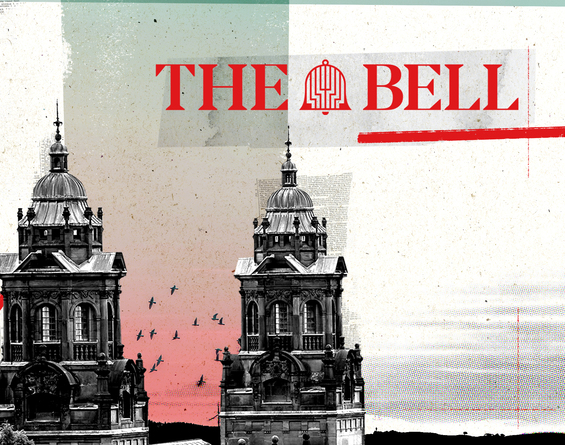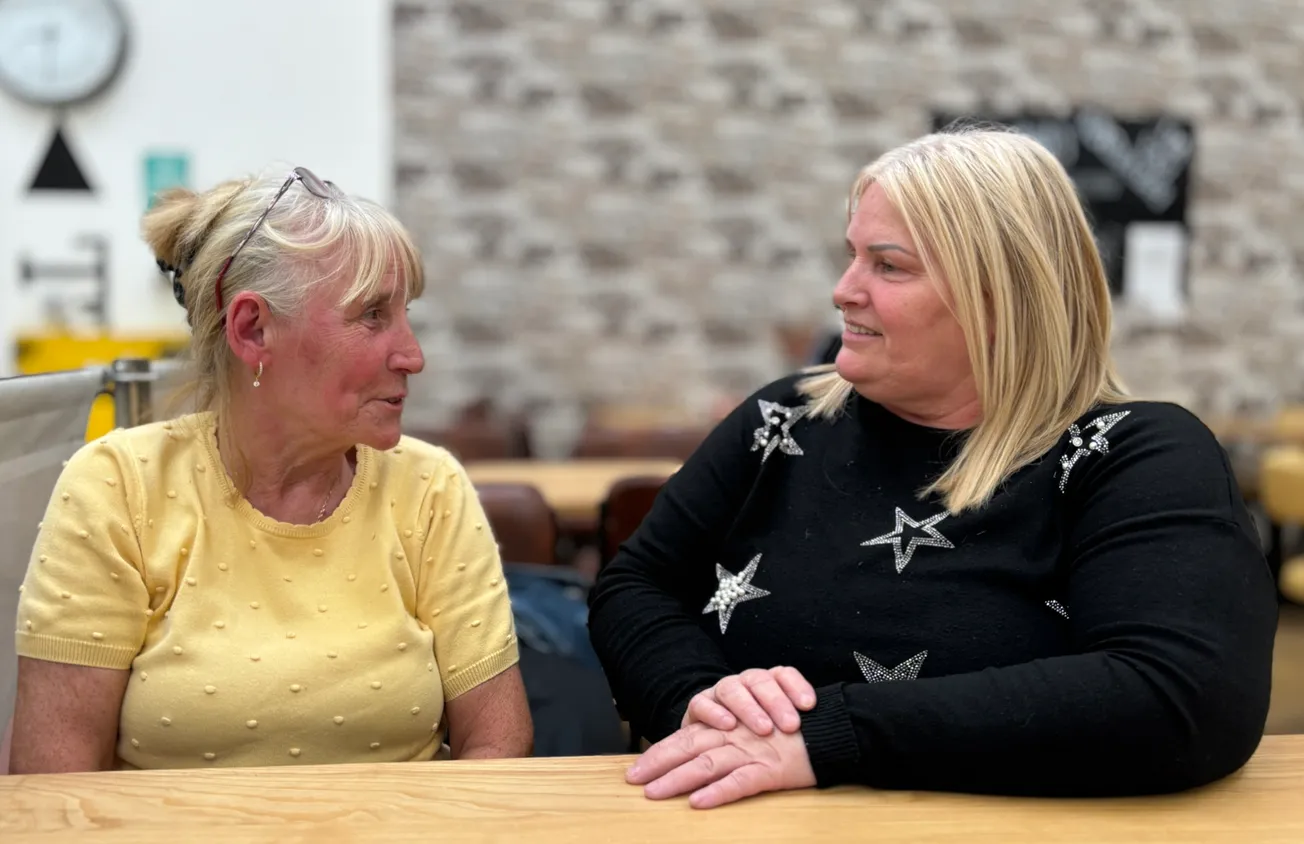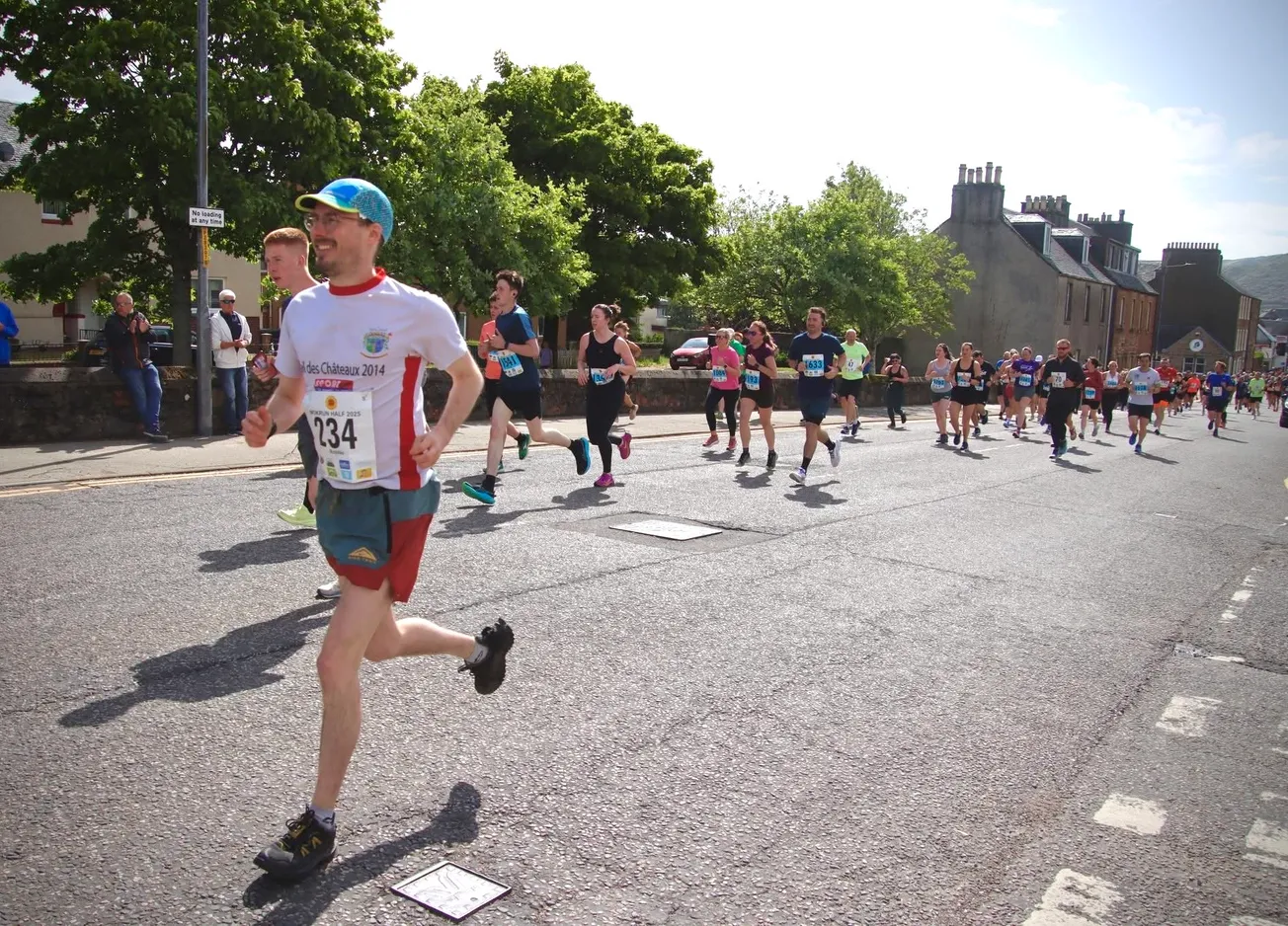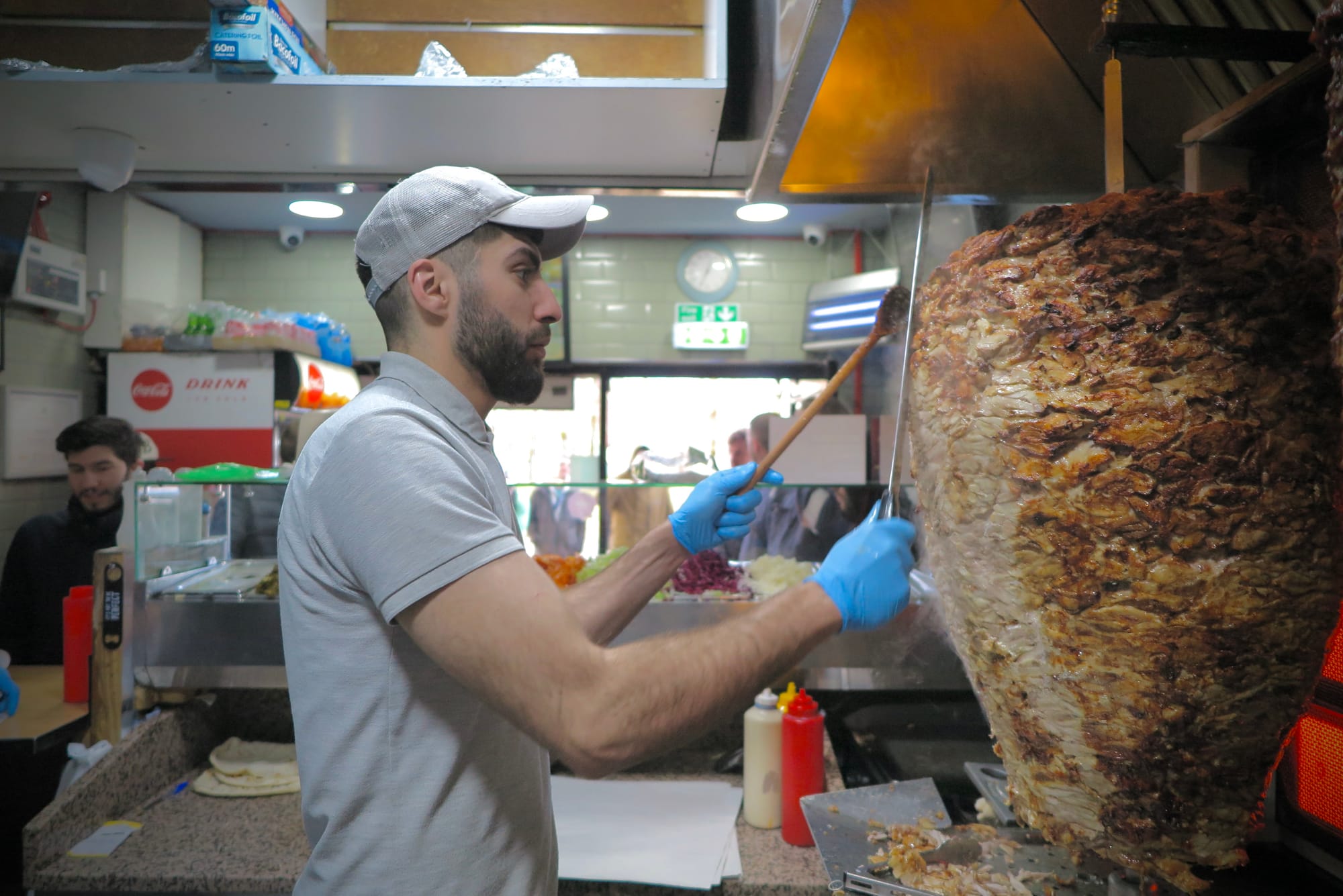The weather is punishing those who dare to venture out tonight. Under the illuminated lights of the Kurdish Street Food sign, a man is hunched over, his glasses steaming up as he takes what cover he can find from the downpour.
It’s early Friday evening, and the illuminated figure has walked forty minutes through the sideways rain from Ibrox. All he’s had to eat today is a couple of pickles, straight out of the jar. We shake hands and exchange pleasantries, hurrying indoors to place an order for some of the best wraps the city has to offer.
Embarking on my odyssey here, with Will, a fortysomething guy from Crystal Palace, might seem like an unlikely starting point — but this is a man who knows the city's shawarma spots better than almost anyone else.
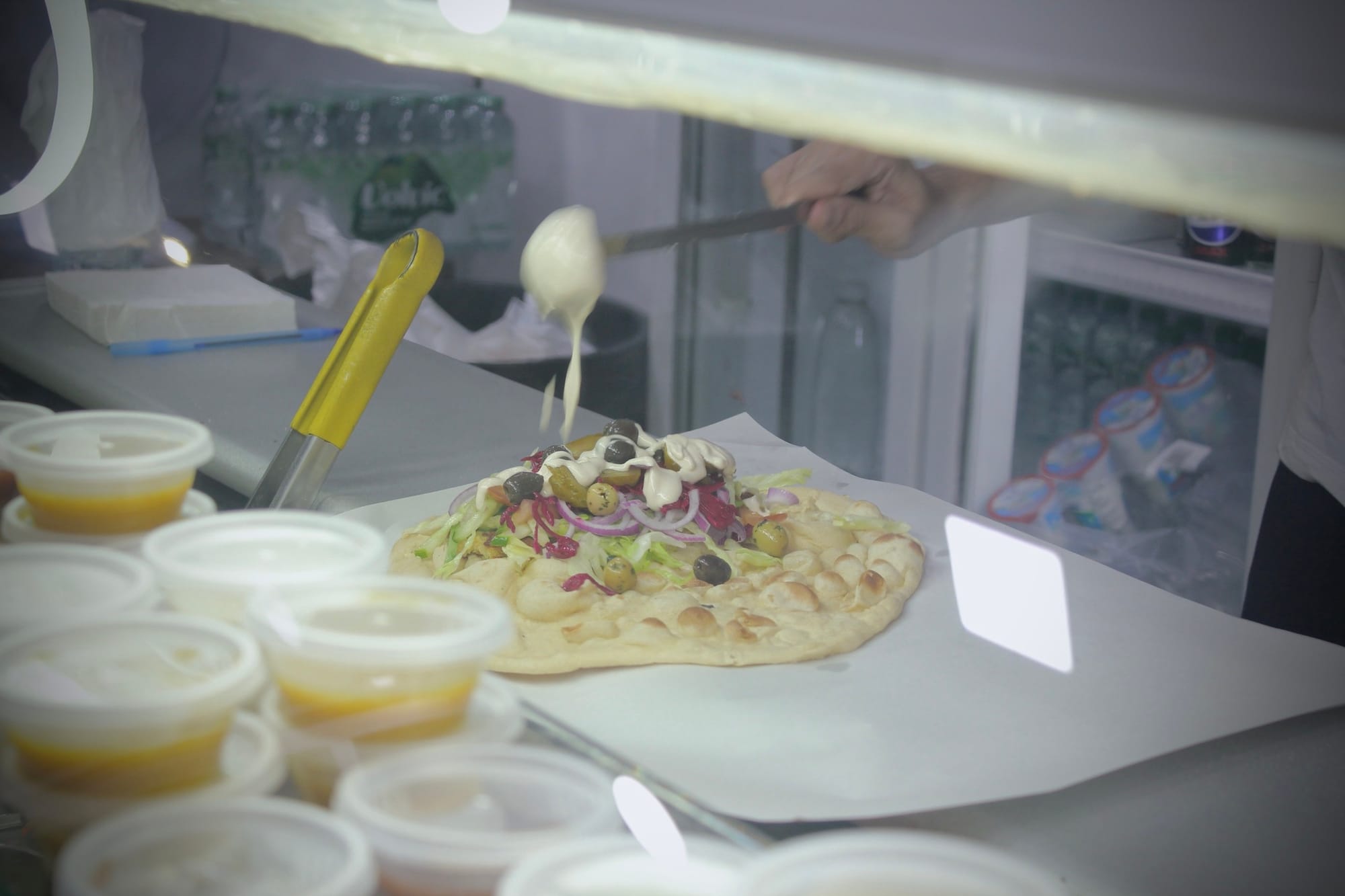
Since 2012, Will has catalogued the city’s meat wraps in zany, unpredictable fashion, briefly under the ‘KEBABLOG’ moniker then, since a 2017 rebrand, as ‘Shawarma Police’. His blog is a testament to one man’s dedication to the wrap game — a pantheon of 100-plus entries spanning everything from Govanhill’s Kurdistan Shawarma (RIP) to Morello’s Grill (only real ones know), to less likely entries like ‘Farmfoods L.A. Diner Doner Meat’ and brief non-Glasgow sojourns to the likes of Aroos Beirut in Whitley Bay and Sunderland’s Döner Haus.
“I’ve been everywhere that there is to visit […] I’ve most definitely been to all the shawarma ones in Glasgow. Most of the good kebab ones too,” Will tells me excitedly. In short, he has eaten every shawarma the city has to offer. Meanwhile, the shawarma has eaten Glasgow.
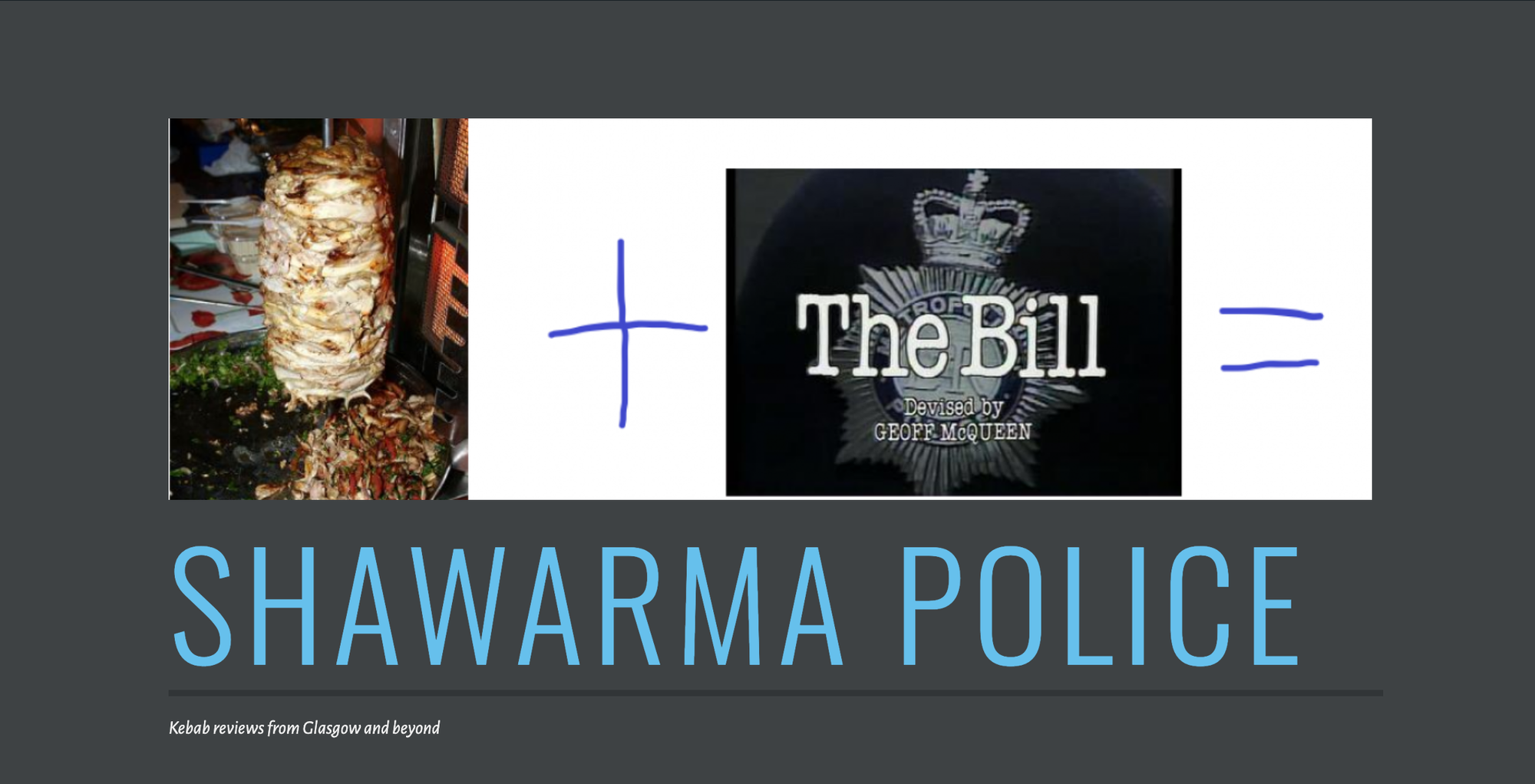
What marks out shawarma from other portable meat modalities is that it is built on a rotating spit made from whole pieces of marinated meat, normally lamb or chicken, with spices varying according to which part of the Levant the chef hails from. Doner, shawarma's rotational cousin, meanwhile, is of Turkish origin, and made from minced meat. Confusingly, shawarma is not considered a kebab, the most predominant of which is shish: whole pieces of meat cooked on a skewer over a fire.
Will talks me through the phenomenal growth of shawarma places he’s charted over the years. Shawarma King, one of his first reviews, has been joined by the likes of Glasgow Shawarma, Shawarma Grill and Beirut Star, he explains, referring to the King Street establishment that started the trend for shawarma in the city, along with a few other favourites of his in Ibrox and Cessnock.
“You have a stretch of, if not Kurdish, then Levantine, Lebanese places — certainly you get more [shawarma] than traditional kebab shops today,” he tells me.
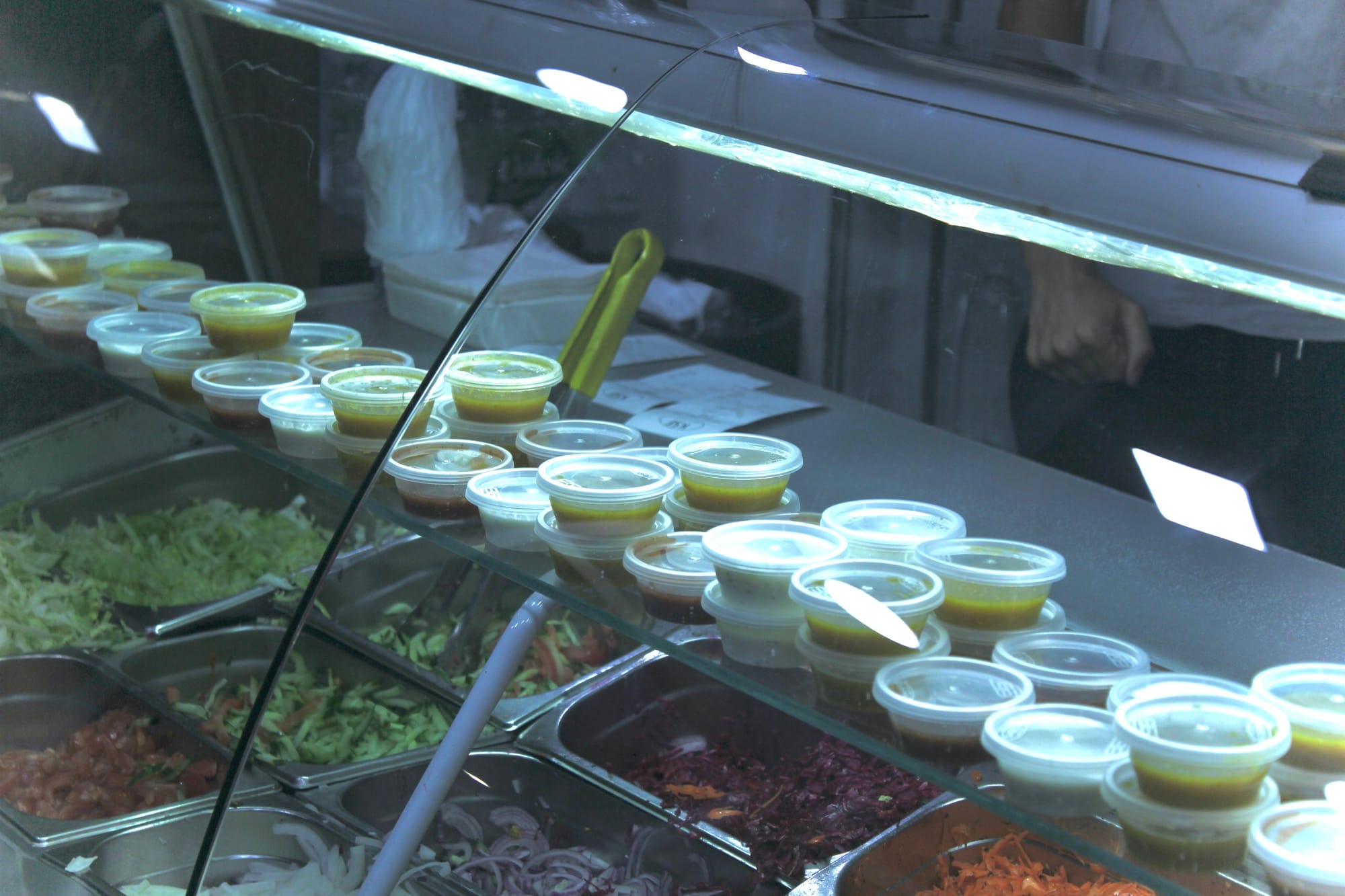
While the city’s Chinese, Pakistani, Indian and Bangladeshi communities have all transformed our eating habits in the postwar period, the predominant wrap modality in these parts, like in the rest of the UK, has long been the Turkish-style doner kebab.
All this changed in 1999, with the passing of the Immigration and Asylum Act, when Glasgow became Scotland’s only dispersal city. Since then, the cityscape has been evolving, as communities from Kurdistan, Iraq, Afghanistan, and the wider Levant have been granted leave to remain. They began working as soon as they legally could (sometimes sooner), and subsequently opened their own takeaways, restaurants and shops across the city. Their contribution to the diversity and quality of food in Glasgow has been immense, although Will puts it in somewhat more prosaic terms.
“People have discovered shawarma and gone: ‘A wonky kebab in a pita bread with some flaky salad is perfect at two in the morning,’ but they’ve eaten the shawarma and said: ‘You don’t need to be pissed to eat this, it’s a good lunch.’
“It's something you can have for a meal at any time. I think a large part of that is because shawarma does have a quality to it,” he says.
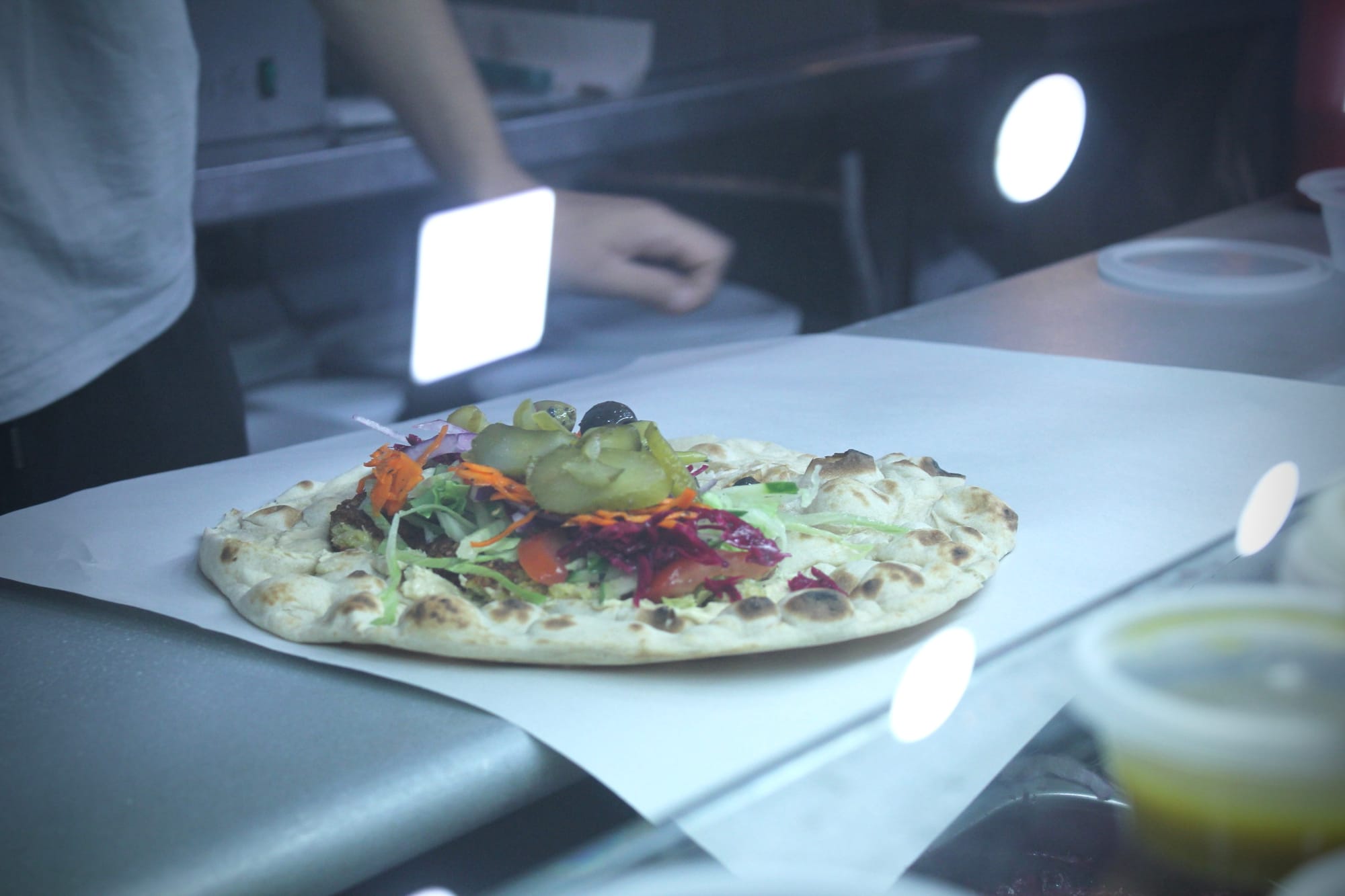
Will wanders up to the Perspex screen and orders a mixed shawarma (both chicken and lamb meat) with cabbage, olives and chilli sauce. We wait for our food, then sit down at a bright yellow booth at the back, where Will takes off his thick black glasses and gives them a good wipe.
The secret to a good shawarma, he explains, is not only in the quality of the meat, but also the “meat-to-sauce ratio”, which is around 60-40%. Tupac is blaring out of a TV behind us, intermittently pausing for adverts.
Across the counter, Ishmael, a Kurdish Street Food OG, is stoking the coals. Next, he elaborately works the dough balls between his hands before slapping them into the tandoor oven. He stops, leans over, and with a smile interrupts our conversation to pass us a couple of ice cold Mirindas in glass bottles.
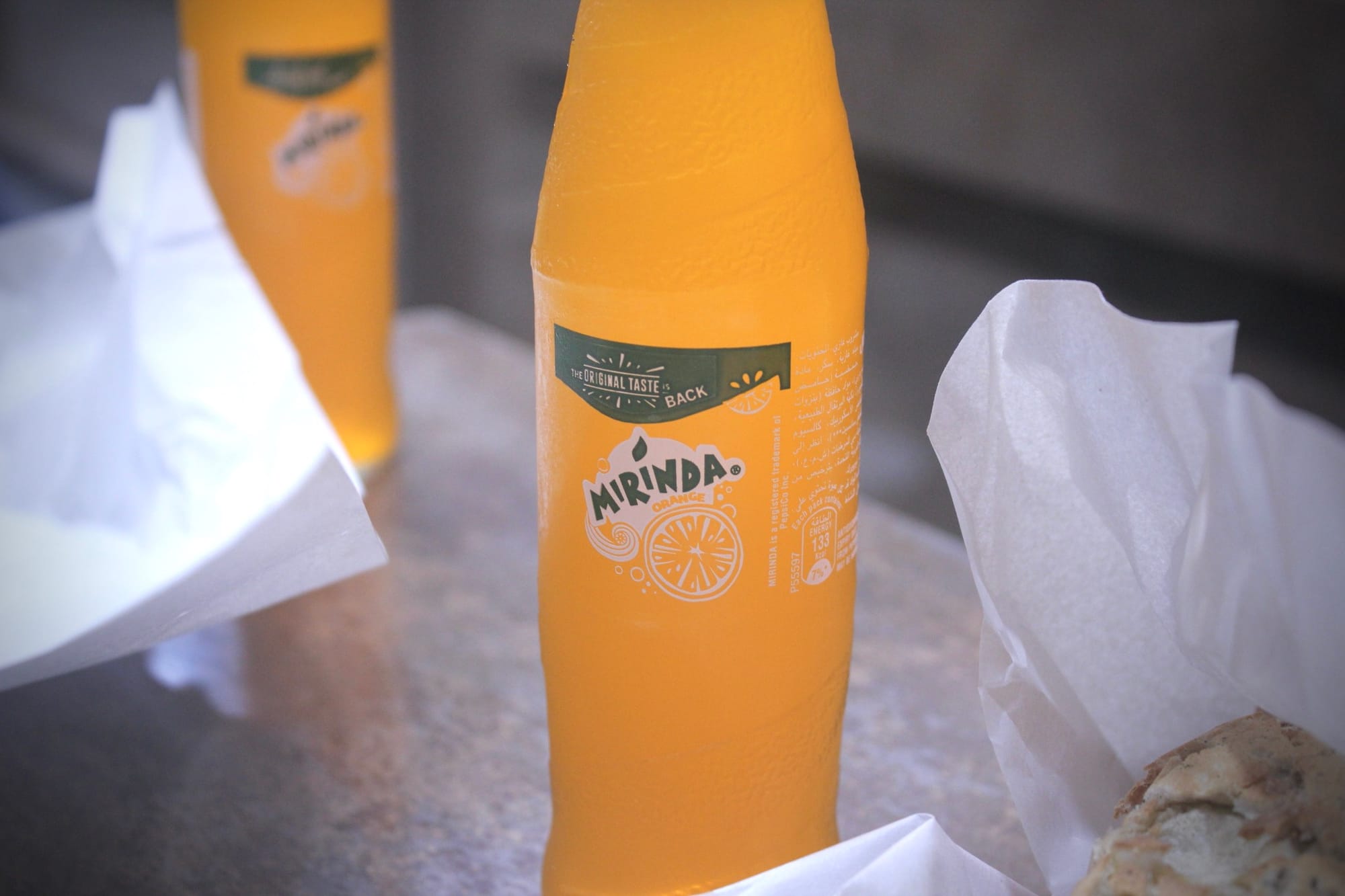
Will tells me the story of his first trip to Shawarma King, or Hajar’s Shawarma King, as it was then known. It was summer 2017 and Radiohead was playing TRNSMT around the corner from King Street on Glasgow Green. He left early, halfway through Kasabian’s set. “They weren’t all that bad, but I was hungrier for kebab than I was for [a] band from Leicester,” he wrote in his blog afterwards.
It was the place that “pioneered shawarma in Glasgow”, he says. Now, however, Kurdish Street Food is “as good, if not better than Shawarma King”, he wagers between mouthfuls of mixed wrap. Will used to stay on the same street as Kurdish, not far east from where I now live. Like me, he also remembers when a wrap cost only £3 here, one of the cheapest dinners in the city. Today, a falafel wrap will set you back £6, while a mixed shawarma costs £8.
If you're reading this and you haven't yet joined our free mailing list, click here to get Glasgow's new quality newspaper in your inbox every week.
The following Tuesday afternoon, I’m back at Kurdish Street Food to speak to Walid, perhaps the longest-standing member of staff. He and Ishmael greet me as I enter, but it’s far busier than Walid had anticipated, scuppering our chance for an interview.
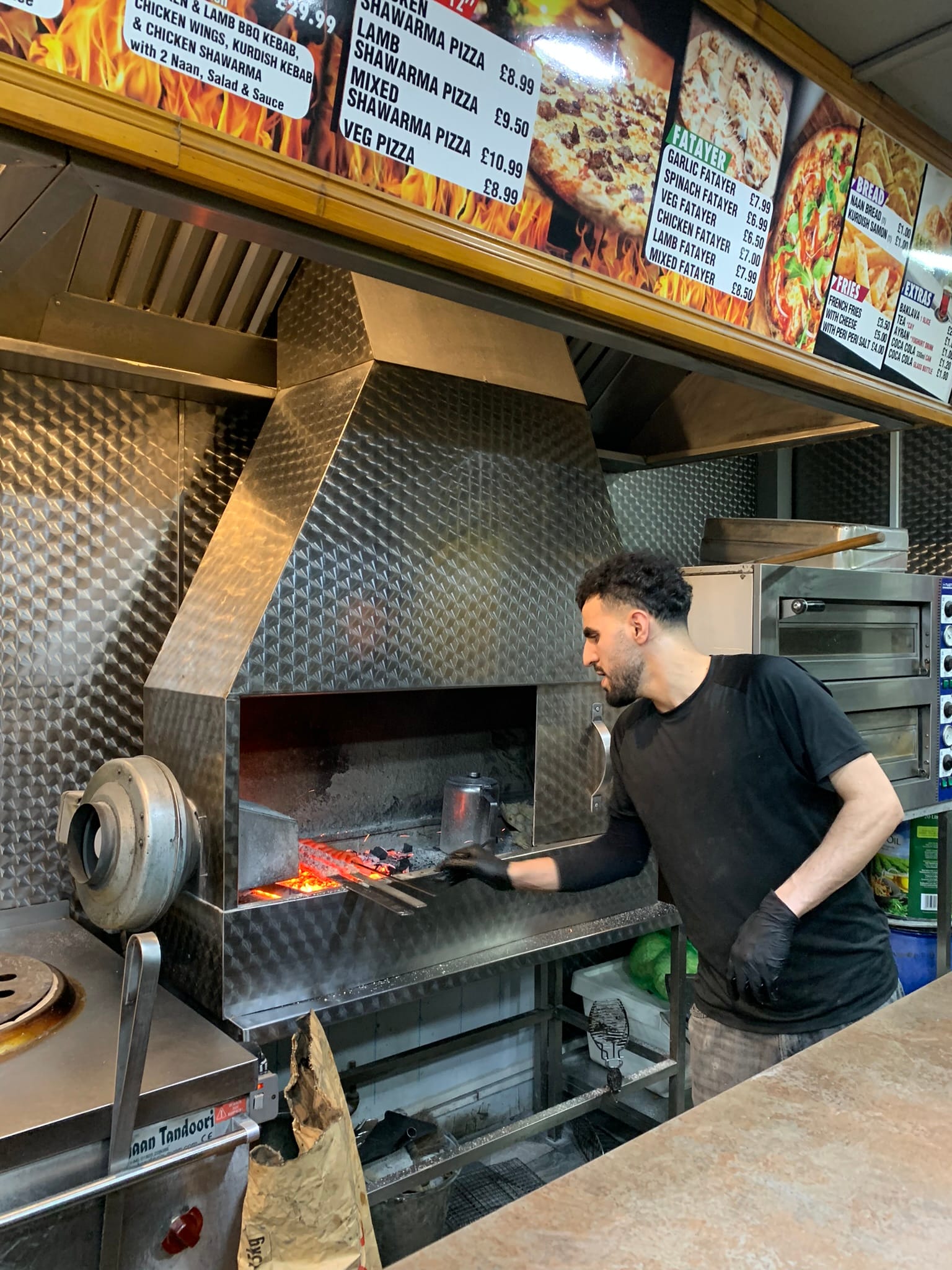
Ishmael is carving up lamb and chicken from the shawarma spit, intermittently sharpening a knife at a dangerously close angle to his curly hair, let alone his right cheek. Once he’s done, he pops out on an errand, leaving Walid to serve a family sitting in a booth, who’ve ordered several large sharing plates of shawarma and falafel. A steady stream of customers flow in and out. Walid is taking their orders, making breads in the tandoor, frying falafel, carving meat, and rolling up hefty wraps before passing them over the counter to hungry customers. Yas Khidr, the Iraqi folk musician known as ‘voice of the earth’ plays loudly from the telly.
One customer tells Walid that he’s been up and down the street to find a cash machine that works; Walid informs him that from tomorrow, they will finally be accepting cards — a move they’ve resisted for years, despite the Deliveroo tablets on the counter which closely resemble card machines.
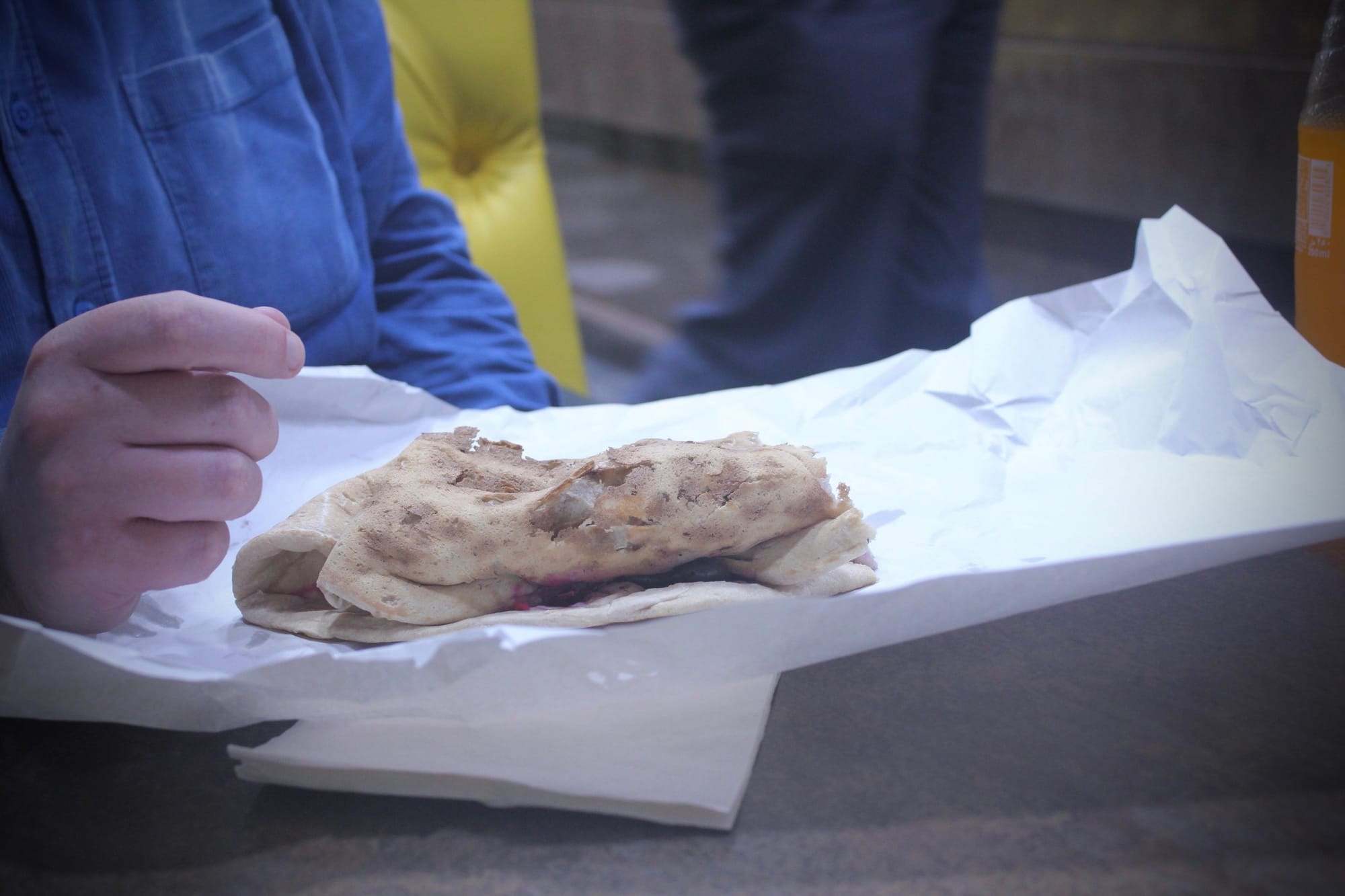
I wander over to Walid, who’s busy slapping flatbreads into the oven. He apologises for not having the time to chat, and we both express surprise at the 4:30pm full house. It is a typical Kurdish Street Food scene: busy at an unexpected time of day; unusually warm from the heat of the coals and spit; a happy clientele ranging from workers and entire families to hipster couples on their way out for the night. I exit onto Allison Street, reflecting on the ways in which the place has changed over the years — price increases, a rotating cast of staff, growing culinary nods to the burgeoning vegetarian community, colourful new booths, turquoise Deliveroo stickers — all the while staying almost exactly the same.
The King on King Street
Eighteen months ago, I met with Roza Salih at her favourite place to eat lunch in the city, which just so happens to be a five minute walk from her work. When she was voted in as a SNP councillor in 2022, she became the first refugee to be elected to Glasgow City Council. Roza is one of the Glasgow Girls, having protested the Drumchapel dawn raids in 2005.
“I have Kurdish food on my doorstep, it's amazing,” she says with a smile, ignoring the huge queue snaking out of the shop and down the street.
“I came to this country as a refugee, and we're looking back to 2001 when not many diverse restaurants were available in Glasgow. So for me, diverse food is a luxury in Glasgow — to have that in front of your door and have that world, that country, on your doorstep [… ] diverse food, diverse restaurants, that you can go along and have the food that you like, not travelling to that country, but having that in your own city — it’s wonderful to have,” she says.
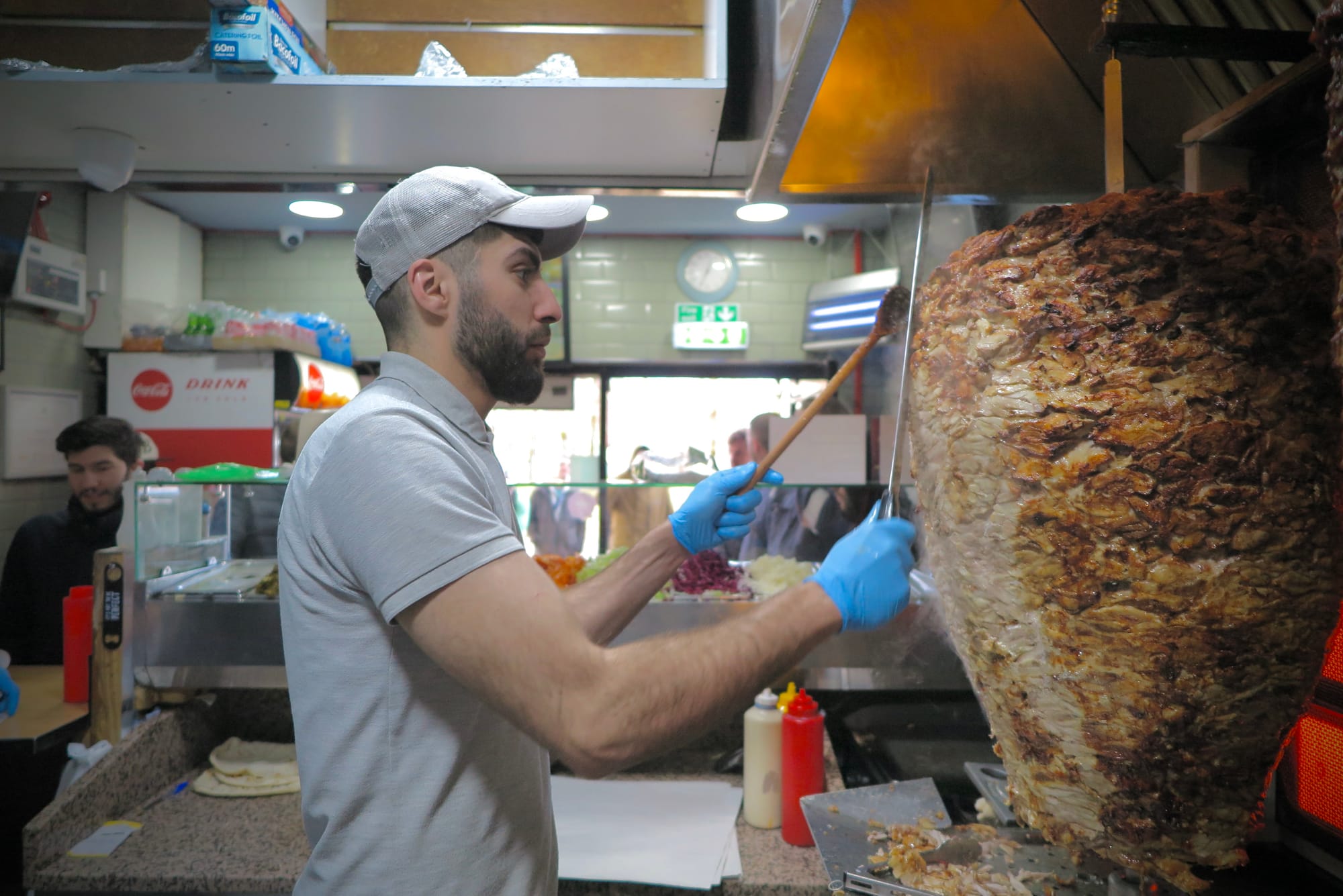
Shawarma King occupies an exalted position in Glasgow’s takeaway scene. Not only has it won several awards, it has also featured in lists of the best restaurants in Glasgow, despite having no indoor seating, and only a few meagre metal chairs and tables streetside. Sleek social media videos across all the major platforms feature reels and jump cuts of plates loaded with wraps, chips, dips and drinks. POV and how-to videos show how the shawarma is made. This is Glasgow’s viral shawarma spot. When Netflix food show, 'Somebody Feed Phil', arrived in Glasgow earlier this year, they didn’t bother venturing along Paisley Road West or Allison Street — they came straight to the railway arch on King Street.
Fresh from winning best kebab shop in Scotland at the British Kebab Awards for the second year on the bounce, Shawarma King’s owner, Majed Badrekhan, emerges from behind the counter to greet Roza and me. He’s in his late twenties, wearing a grey branded polo shirt, matching baseball hat and jeans. He ducks back under the counter to show us where the food is made, and gestures at us to follow.
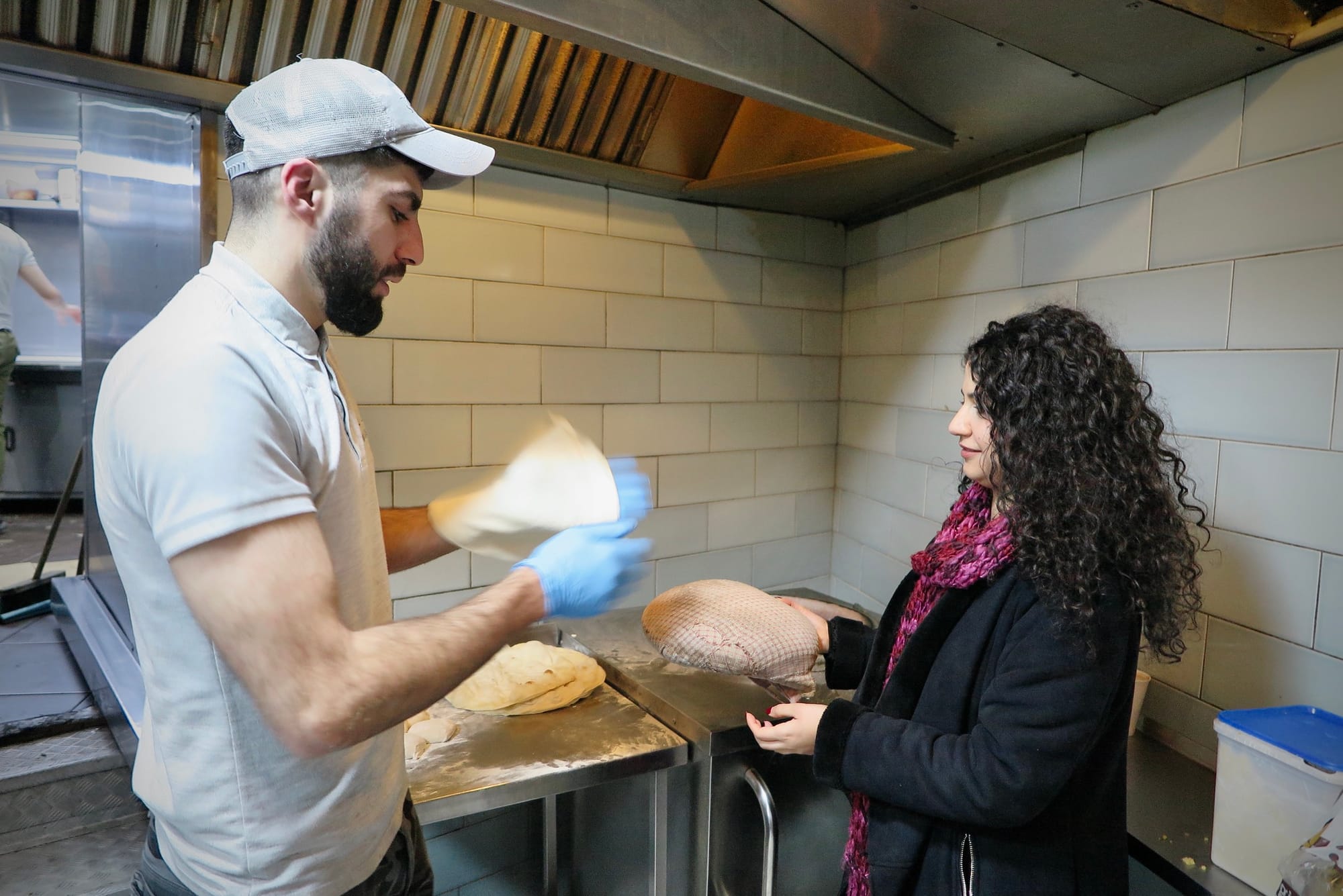
They make the naan bread fresh every day, before cooking it in the tandoor to order. He invites Roza to have a go, and she duly delights in doing so. “Everything is made from scratch,” Majed says with pride, from the sauces and pickles to the marinades for the meat. He points to a 100-kilo lamb shawarma behind us, and explains that it is always marinated a day before cooking. The following day, it is built up by hand, piece by piece and cut to order, “with a knife, not a machine”, Majed explains. He points to the second shawarma and tells us it’s “around 120–130 kilos of chicken”. Both shawarma seem to defy gravity — bulbous, imperfect and formed into an impossible whole around a central spit.
“Doner is really famous in the UK, now shawarma is taking its place,” Majed says with a laugh.
Shawarmarama drama
It’s a moody Monday afternoon, and I’m standing at Glasgow Cross, facing the Mercat building and the Gallowgate. To my left is a modern black gushet building. Blue lettering announces that this is ‘Hajar’s Shawarma’ in capital letters, no fewer than five times across the frontage.
Twelve years ago, only five years after he’d fled to Glasgow from war-torn Syria, Hajar Salih was standing in the same spot. He was staring at a chicken shop, thinking to himself that this would be the best spot for a shawarma restaurant and takeaway. Then by chance, half a year ago, he heard from a friend that the place was up for sale. He put in an offer immediately. They opened two months later.
If anyone can be credited for kickstarting the city’s shawarma obsession, it is Hajar. He opened his first place in 2014, Hajar’s Shawarma King, which he sold to Majed in 2019. After that, he opened Hajar’s Shawarma King in Edinburgh, on Leven Street. He returned to Glasgow in 2020, opening a flurry of new spots: Sauchiehall Street, Howard Street, John Street and the one on the Gallowgate where we’re meeting today. He recently sold the John and Howard Street branches to former staff members so they can get their start, but they’ve yet to change the signs. He wants to focus on maintaining high standards at his two Glasgow branches, but he has his eyes on another location, this time in the West End.
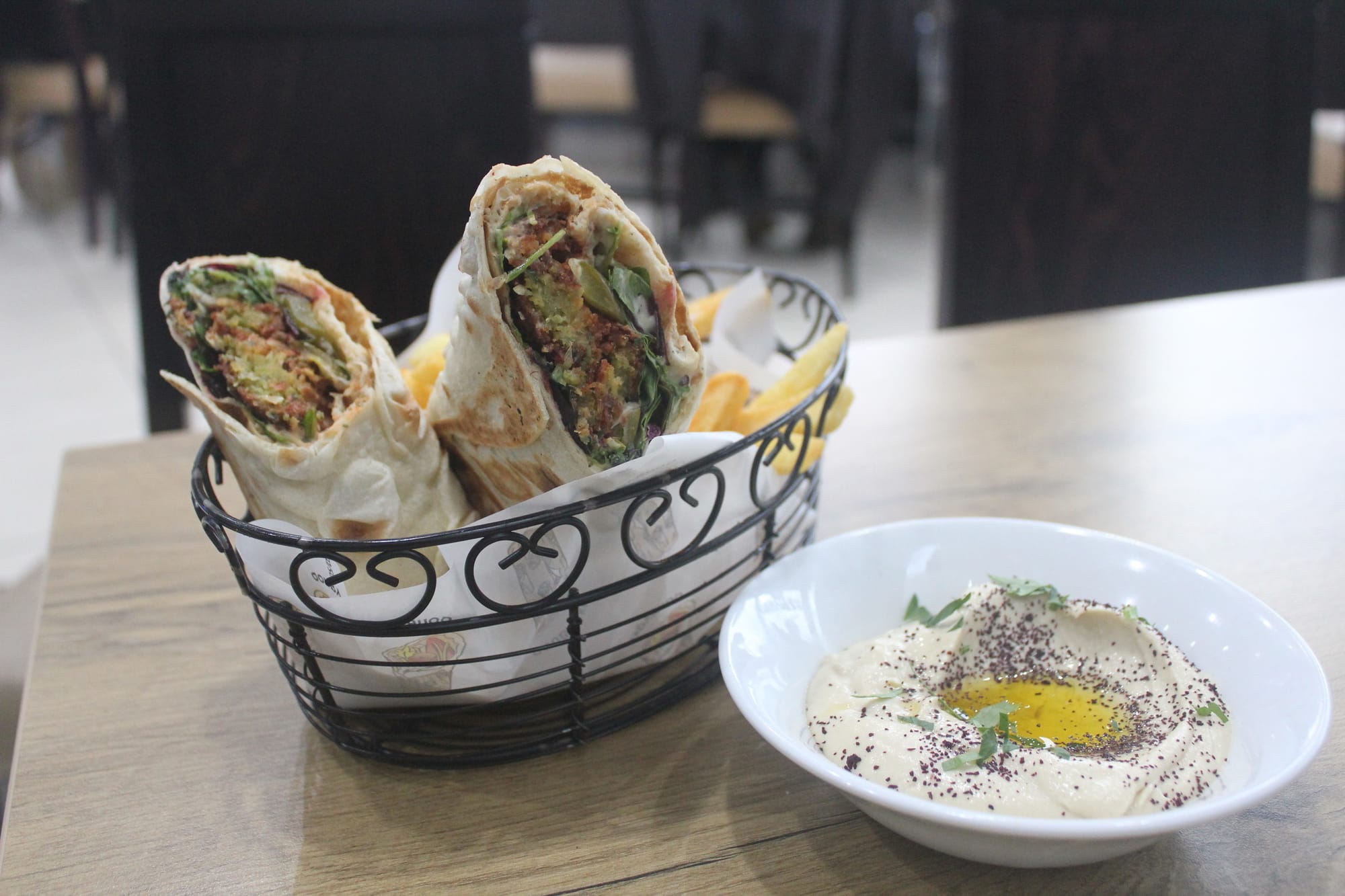
As I walk in the door to meet him, I am immediately greeted with hellos, handshakes and offers of hospitality from both Hajar and his wife, Maria Chiesa, also a co-owner of the Gallowgate branch.
“It was my idea to bring shawarma to Glasgow. At that time when I came to Glasgow, I said it needed different food. It was all Indian and Chinese; it didn’t have Middle Eastern food,” Hajar explains.
He tells me that the difference between a Syrian, Iraqi and Kurdish shawarma lies in the spicing. When I ask what spices he uses, Maria laughs and exclaims: “I can’t believe you even asked that!”
“Secret ones,” Hajar says with a belly laugh.
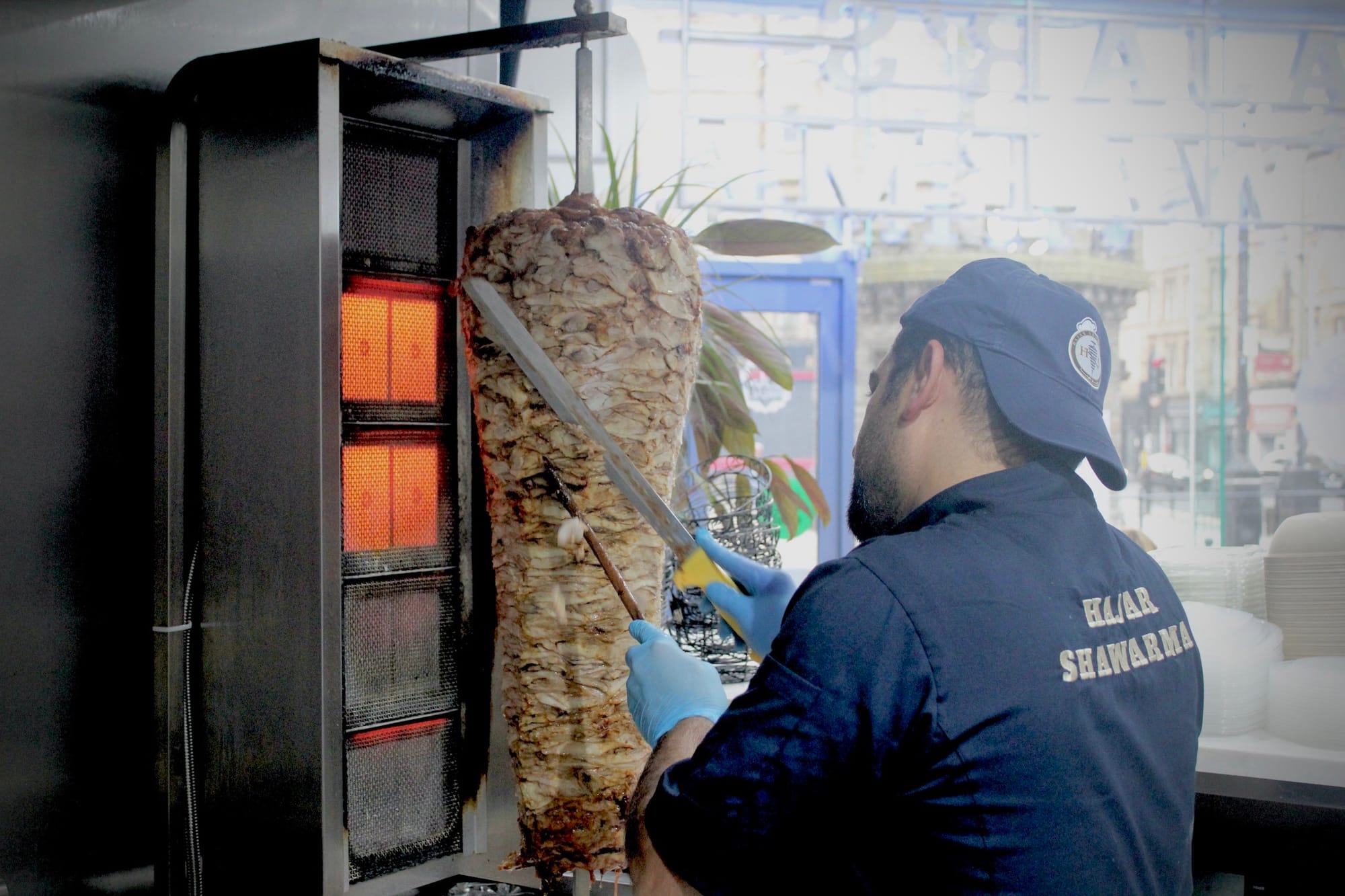
To make the shawarma, they buy raw meat, marinate it for a day, then build it fresh every day. The process sounds familiar, and when I ask if Hajar taught Majed, Maria cuts in straight away. “It’s a controversial topic. We don’t admit it to each other, but there is a rivalry […] a friendly rivalry, we like to keep each other on our toes,” she says with a smile.
“I’m happy for the guys […] I’m happy he’s busy,” Hajar says. “We’re all out here trying to make money and make good food,” Maria adds.
Maria explains that before Hajar opened the King Street shawarma shop, it had been a barbers. “It was literally a tiny room with one electrical outlet, there were leaks coming in the roof,” she says.
“I was like, Hajar, you’re never going to fit a kitchen in here, how are you going to turn it into a takeaway? And he did it — I couldn’t believe it.”
“Sometimes you get a small space, but you make a big name,” Hajar says with a wide grin.
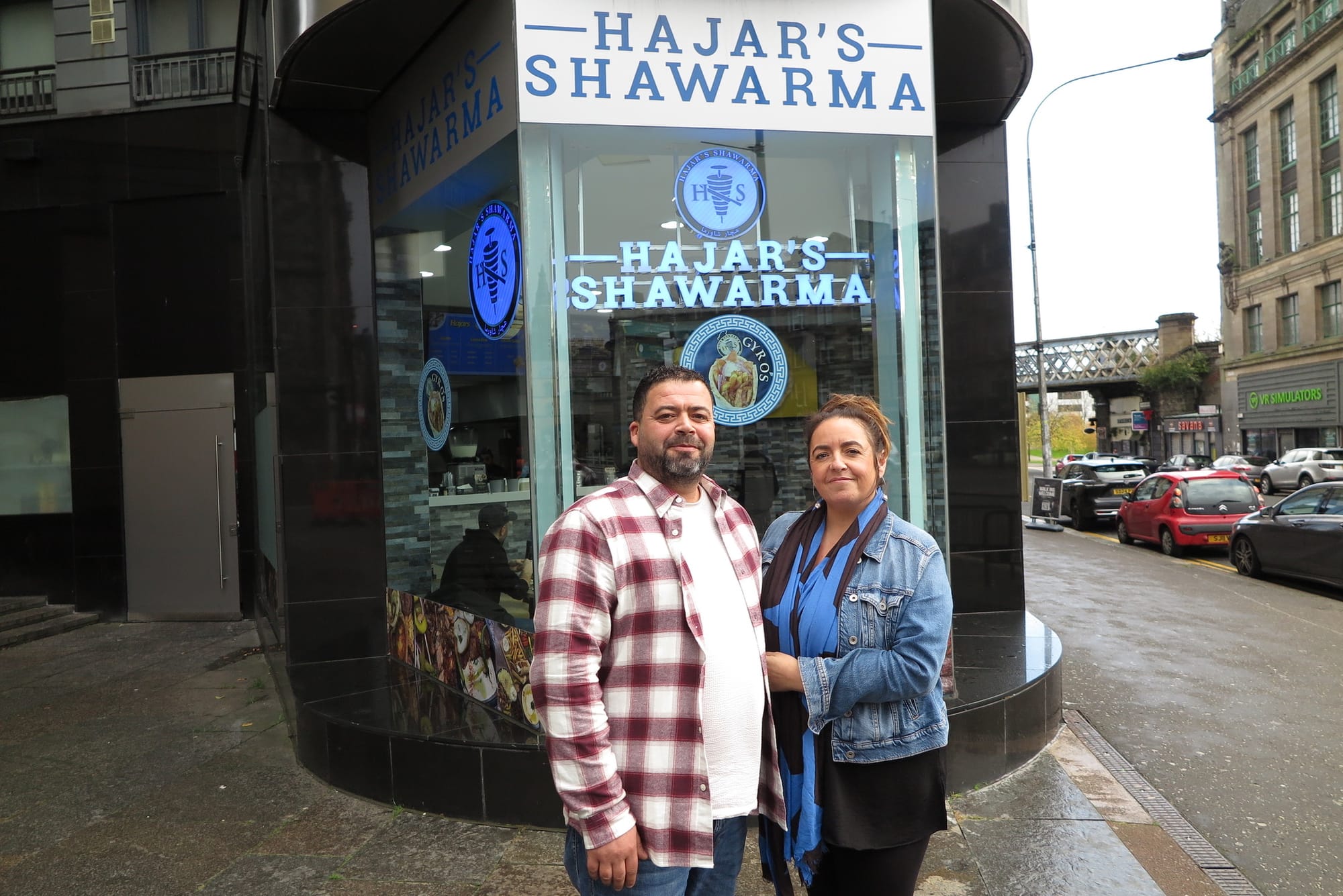
At the start, Hajar, a refugee himself, struggled to hire experienced chefs to cook shawarma. But when more refugees ended up in Glasgow through the resettlement scheme, he was eventually able to find qualified chefs originally from the Middle East who had experience cooking shawarma back home.
“It’s just the amount of love and care that goes into making the food from scratch every day. The guys standing there all day, making hundreds of breads for all the shops, for Sauchiehall Street, for here […] it’s a lot of work to keep an eye on everything, every aspect of it, and make sure that it all hits the same note every time,” Maria explains.
Hajar works from 11am to 2am most days, with the odd shisha or coffee break. Sometimes, he’s so tired he takes naps in the car, Maria tells me.
Hajar calls over to the man at the next table, to say how happy he is to see him finish his plate, having recommended he order the couscous with his meal. Hajar asks him if he enjoyed it. He responds with a thumbs up and a smile, and says: “Thank you for choosing Glasgow”.
I point out that he’s now opened more shawarma spots in the city than anyone else, and ask him, cheesily, if he’s the king of shawarma. He demurs, but Maria confirms he is. She says she could pick out his shawarma wrap next to five different ones “because it always tastes the best”.
“Doner has a reputation as the poor younger sister of shawarma. People’s perception of it is that they don’t make it in-house, it comes out of the freezer, and it's been on the spit all day,” Maria says.
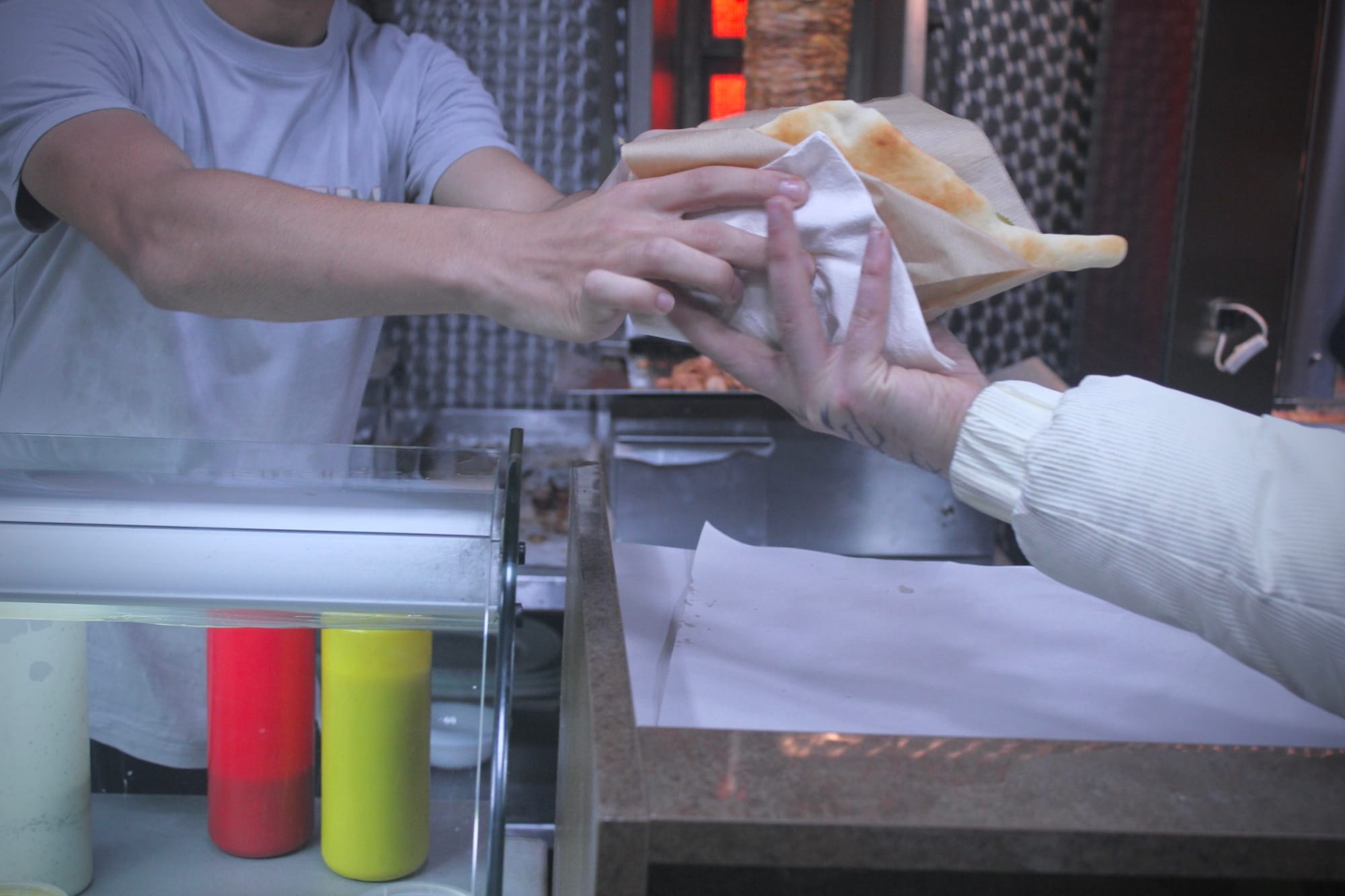
Hajar points out that he buys his meat for nearly £9 per kilo, then has to marinate it and make the spit, whereas doner meat is ready to cook at £2.50 per kilo. “The quality is top, and that’s what gives [shawarma] its taste,” Hajar says with a satisfied smile.
Maria adds: “Let’s be honest, we’ve all gone into kebab shops, and gone ‘oh god look at this doner’. So when you see these big ones going round, you know they’re made fresh — I think that that’s why [doner] has had its day. It’s a shame, but times move on.”
We stand by our food, we’re not really interested in accolades […] The customer telling you how good the food is, that’s the only award that matters.”
Comments
How to comment:
If you are already a member,
click here to sign in
and leave a comment.
If you aren't a member,
sign up here
to be able to leave a comment.
To add your photo, click here to create a profile on Gravatar.


